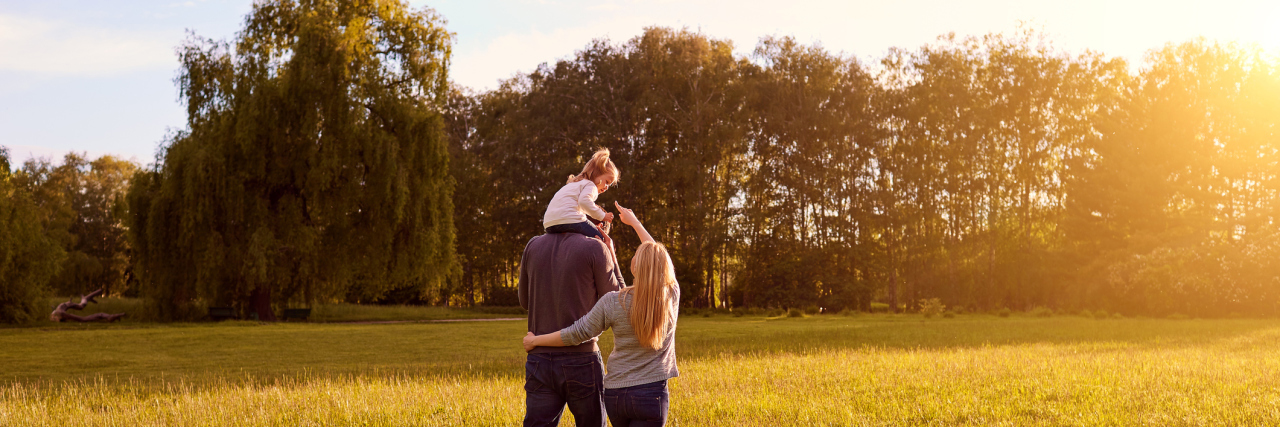I was extremely lucky growing up in that I had two wonderful parents who made my life as “normal” as possible despite my disability. I have osteogenesis imperfecta, or brittle bone disease, that causes my bones to break easily and grow abnormally. I am 2’7″ short and use an electric wheelchair for mobility. Like many with a physical disability, my condition does not affect my mental state at all, and I was always a straight A student. In fact, I graduated from a mainstream high school and college with honors.
For me, the most important piece of advice I can give parents who take care of a child with a disability is not to let them feel sorry for themselves. Even though I dealt with hundreds of broken bones for two-thirds of my childhood, my mother made sure that instead of sitting at home and pouting, I got up and learned how to function with pain. After all, it would be something I’d have to deal with for my entire life, and it’s better to learn effective coping mechanisms at an early age. Certainly there were days where I just couldn’t go to school due to broken bones, but those were few and far between. Mom made me want to get up and go to school, hang out with my friends, and pursue my art career. If anything, I was most upset when I wasn’t able to do these things because of a broken bone. I never had the urge to sit home and do nothing, and still don’t.
This leads me to my second piece of advice – school inclusion. I’m a huge advocate of including kids with disabilities, both physical and mental, in mainstream schools. Not only is it socially beneficial for the disabled kids, but it also teaches the rest of the student body that everyone’s different, and that’s OK. That is an extremely important lesson for them to learn before they get out into the real world. Although very few grade schools wanted to admit me into a regular classroom rather than a special ed class, my parents knew that the social and mental interaction I would get from being in a class with “normal” kids my own age was invaluable. They eventually found a small private school that was willing to make the physical accommodations I needed to thrive. Certainly there were activities I couldn’t take part in, and yes, at times I felt left out and slightly bullied, but what teenage girl doesn’t? I not only had all the usual social experiences kids have, but my classmates learned that just because someone is in a wheelchair or a little different, it doesn’t mean they are useless.
I was one of the best students in my class and eventually graduated summa cum laude from Loyola University New Orleans with a BA in Graphic Design. I now successfully run my own art and design business. If I hadn’t had a normal, challenging school experience growing up and supportive parents who pushed me, I don’t think I’d be where I am today.
As hard as it is, my last piece of advice to parents is not to over-coddle your kids despite their disability. In my case, my parents taught me how to take care of myself and eventually got to a point where they trusted me to make good decisions that would keep me uninjured (mostly). They let me go to school dances by myself, go to the movies with my friends without an aide, and trusted that if I needed them, I would call — and I did when necessary.
The fact is, things happen whether you are watching your kids every second or not. The social lessons they learn from being without you for a little while become extremely important when they get to the real world as adults. Think about when you were a kid. It wasn’t cool to have Mom or Dad hanging around all the time, was it? The same is true for your child. They need a little bit of space to evolve and to become the person they will grow up to be. I’m not saying it’s a good idea to abandon your child, but letting them hang out with their friends for a few hours without you hovering is not a bad idea.
The fact is, having a child with a disability is often hard. You have to find that precarious balance between protecting them from harm and letting them figure life out on their own. There will be times when they need you, and there will be times where you have to let them fall and learn the tough lessons on their own. I think every parent struggles with this, but the addition of a physical or mental disability definitely amplifies the problem. In the end, the best you can do is just going to have to be good enough, and your kids will later thank you for supporting them in everything they want to do with their lives.
We want to hear your story. Become a Mighty contributor here.
Thinkstock photo by Lacheev.

